Navigating financial challenges can be daunting, especially for low-income families. Fortunately, in the UK, there’s a network of support systems designed to provide assistance and improve the quality of life for those facing financial hardship.
This article will explore various government grants, schemes, charitable organizations, and other resources available to low-income families across the UK.
Government Grants and Schemes
The UK government offers several grant programs aimed at helping low-income families improve their living conditions and reduce essential costs. Some of the most prominent schemes include:
ECO4 Scheme
The Energy Company Obligation (ECO) is a government program designed to reduce carbon emissions and tackle fuel poverty. The ECO4 scheme, the latest iteration of this program, runs until 2026 and focuses on helping low-income households improve their homes’ energy efficiency.
What is ECO4?
ECO4 requires large energy suppliers to fund and install energy-saving measures in eligible households. This support helps families reduce their energy bills and create warmer, healthier homes.
Eligibility Criteria
To qualify for ECO4, you generally need to meet the following requirements:
- Receive Qualifying Benefits: You or someone in your household must be a recipient of at least one of the qualifying benefits, including:
- Child Benefits
- Child Tax Credits (CTC)
- Housing Benefit
- Income Support (IS)
- Income-based Jobseekers Allowance (JSA)
- Income-related Employment & Support Allowance (ESA)
- Pension Credit Guarantee Credit
- Pension Credit Savings Credit
- Universal Credit (UC)
- Warm Home Discount
- Working Tax Credit (WTC)
- Homeownership or Landlord Permission: You must be a homeowner or have your landlord’s permission if you’re a private tenant.
- Low Energy Performance Certificate (EPC) Rating: Your home must have a low EPC rating, indicating poor energy efficiency.
Types of Home Improvements Covered
ECO4 covers a range of energy-efficient home improvements, including:
Insulation:
- Cavity wall insulation
- Loft insulation
- Room-in-roof insulation
- Underfloor insulation
- Internal wall insulation
- External wall insulation
Heating Systems:
- Electric storage heaters
- Air source heat pumps (available through UKES)
- Other energy-saving heating measures (available through UKES)
Application Process
To apply for ECO4 grants, you can contact UK Energy Support (UKES) or other approved installers. The application process generally involves:
- Checking Your Eligibility: Review the eligibility criteria and use online tools to see if you qualify.
- Contacting an Installer: Get in touch with an approved installer like UKES. They’ll guide you through the process.
- Home Survey: Schedule a free home survey to assess your home’s energy efficiency and determine suitable improvements.
- Installation: Once approved, the installer will arrange for the installation of the energy-saving measures.
Great British Insulation Scheme (GBIS)
The Great British Insulation Scheme (GBIS), formerly known as ECO+, is a government initiative running until March 2026. GBIS aims to extend support for insulation measures to households that may not have qualified for ECO4.
Overview of GBIS
GBIS focuses on providing insulation upgrades to improve the energy efficiency of homes, particularly those with low EPC ratings and in lower Council Tax bands.
Eligibility Criteria
The eligibility criteria for GBIS are broader than ECO4, including:
- EPC Rating: Homes with an EPC rating of D or below may be eligible.
- Council Tax Bands: Homes in lower Council Tax bands are targeted for support.
- Vulnerability: Households on means-tested benefits or experiencing fuel poverty are prioritized.
Insulation Measures Covered
GBIS primarily funds insulation measures such as:
- Loft insulation
- Cavity wall insulation
- Solid wall insulation
- Solid floor insulation
- Underfloor insulation
- Flat roof insulation
- Secondary heating controls
How to Apply
Details on how to apply for GBIS funding are not provided in the sources. To find out more, you can check the UK government’s website or contact your local council for guidance on accessing this scheme.
Other Government Grants for Energy Efficiency
Besides ECO4 and GBIS, some other government initiatives, though not all currently active, have supported energy-efficient home improvements:
- The Green Deal Scheme (No Longer Active): This scheme previously provided loans for energy-efficient upgrades, but it is no longer available.
- Renewable Heat Incentive (RHI): The RHI offered financial incentives for installing renewable heating systems, but it has closed to new applications.
- Boiler Upgrade Scheme: This scheme offers grants of up to £5,000 toward the cost of replacing old boilers with more efficient low-carbon alternatives, like heat pumps.
Heating Assistance Programs
In addition to grants for energy-efficient upgrades, the UK government offers programs to help low-income families with heating costs during the colder months:
- Winter Fuel Payment: This payment helps older adults cover heating costs during winter. Eligible individuals can receive between £100 and £300. You must have been born on or before September 25, 1958, and be receiving Pension Credit or other specific benefits.
- Warm Home Discount Scheme: This scheme offers a one-off discount of £140 on electricity bills for low-income households receiving certain benefits. Eligibility criteria and application processes may vary depending on your energy supplier.
- Cold Weather Payment: This payment is triggered when the average temperature in your area is forecast to be below zero degrees Celsius for seven consecutive days. Eligible recipients of benefits like Income Support, Jobseekers Allowance, Pension Credit, and certain Child Tax Credits can receive £25 for each seven-day period of very cold weather.
Disabled Facilities Grants
Disabled Facilities Grants (DFGs) are provided by local councils to help disabled individuals make necessary adaptations to their homes, enabling them to live more independently.
Purpose of Disabled Facilities Grants
DFGs fund adaptations that make it easier for disabled people to live comfortably and safely in their homes. Examples include:
- Widening doorways and installing ramps for wheelchair access
- Adapting bathrooms and kitchens for easier use
- Installing stairlifts or through-floor lifts
- Providing a suitable heating system
Eligibility Criteria
To qualify for a DFG, you must be disabled and require adaptations to your home to meet your needs. Disabilities can include physical, learning, sensory, mental health conditions, and age-related needs.
Application Process
You can apply for a DFG through your local council. The process typically involves an assessment of your needs and the proposed adaptations to determine eligibility and the level of financial support.
Charitable Organizations and Other Support
A wide range of charitable organisations provide support to low-income families in various ways:
Top Charities Providing Grants
Here are some prominent charities that offer grants and assistance:
- The King’s Trust: This charity provides financial aid to families facing various hardships, including those struggling to afford basic necessities like food, clothing, and household essentials.
- The Salvation Army: This well-known charity offers a variety of programs, including food banks, emergency financial assistance, debt advice, and support for vulnerable individuals and families.
- Family Action: This organization focuses on supporting families through various services, including counseling, parenting support, and grants for essential items like baby equipment and school uniforms.
- Turn2us: Turn2us is a national charity that helps people in financial difficulty access benefits, grants, and other support services. They provide a comprehensive online grants search tool and offer guidance on navigating the benefits system.
- British Gas Energy Trust: This trust, independent of British Gas, focuses on preventing fuel poverty and assists vulnerable households in managing their energy costs and debts.
Other Support Options
Beyond these charities, several other sources of support are available:
- Local Councils: Your local council can be a valuable resource for various forms of assistance, including:
- Financial help and grants for families on low-income
- Discretionary housing payments to help with rent costs
- Information on local food banks
- Home Improvement Agencies (HIAs): HIAs can offer support grants and practical help with home adaptations, but it’s essential to verify their reputability.
- Energy Companies: Many energy suppliers have schemes to assist customers facing financial difficulties, such as grants for energy-efficient appliances or help with managing debt.
- Credit Unions: Credit unions are ethical financial institutions that offer affordable loans and savings accounts, often to those who might be excluded from mainstream banks.
Additional Assistance for Low-Income Families
The sources you provided offer a comprehensive overview of various forms of assistance available to low-income families in the UK. These resources cover a wide range of needs:
Childcare Support
Government grants and schemes can help working families with the costs of childcare, enabling parents to pursue employment opportunities.
Housing Assistance
Programs exist to help families struggling with rent or mortgage payments. Local councils often manage these programs and can provide guidance on eligibility and application procedures.
Educational Grants for Children
Financial support is available to help cover the costs of school uniforms, supplies, and extracurricular activities for children from low-income families. These grants can be accessed through schools or local education authorities.
Healthcare and Medical Support
The NHS Low Income Scheme assists families with healthcare expenses, including prescription charges, dental treatment, and eye care. Additional programs offer support for medical equipment and supplies, as well as mental health services.
Food and Nutrition Assistance
Free school meals are provided to children from low-income families to ensure they receive at least one nutritious meal each day. Food voucher programs offer additional support, and community food banks provide emergency food supplies to families in crisis.
Employment and Training Support
Job training programs, apprenticeship schemes, and grants for starting a business are designed to help individuals gain skills, improve their employability, and achieve financial independence.
Transportation Assistance
Public transport discounts, bicycle grants, and car ownership support programs can make it easier for families to travel for work, education, and other essential activities.
Emergency Financial Assistance
Crisis loans, grants, short-term financial aid, and debt relief programs provide a safety net for families experiencing unexpected financial difficulties, helping them cover urgent expenses and regain financial stability.
Educational Support for Adults
Adult learning grants, vocational training support, and scholarships for higher education offer opportunities for adults to pursue further education, enhance their skills, and improve their career prospects.
Digital Inclusion and Technology Support
Free internet access programs, technology equipment grants, and digital skills training initiatives aim to bridge the digital divide and ensure all families have access to the internet, technology, and digital literacy, which are essential in today’s society.
Conclusion
A range of financial assistance options are available to low-income families in the UK. From government grants and schemes to charitable support and local council initiatives, a network of resources exists to provide help and improve the lives of families facing financial challenges. By exploring these options and seeking guidance from organizations like UKES, Turn2us, and local councils, families can access the support they need to overcome financial obstacles and build a more secure future.






